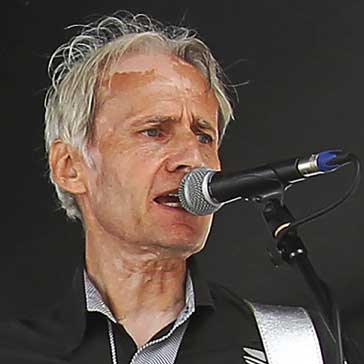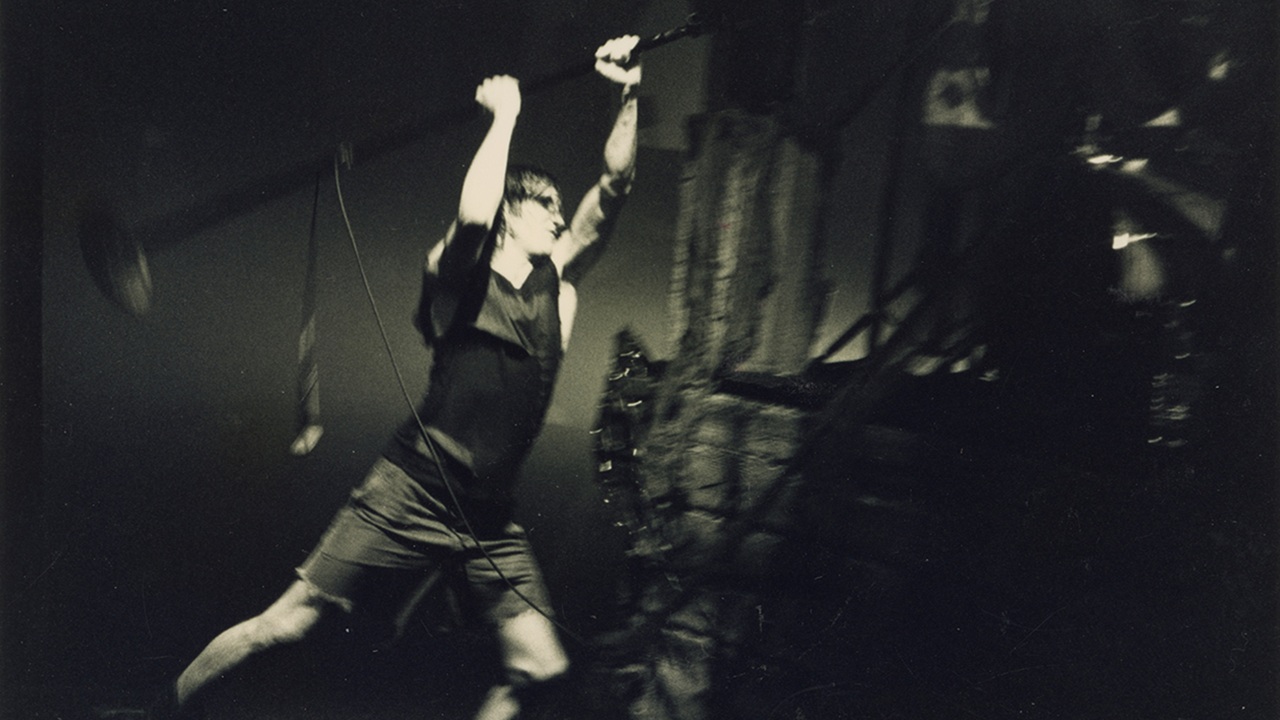Interview: Billy Gibbons on Elwood Francis and the bright future of ZZ Top
The death last year of bassist/vocalist Dusty Hill looked like it might be the end of ZZ Top, but with Elwood Francis now filling his shoes Billy Gibbons reveals why it’s business as usual
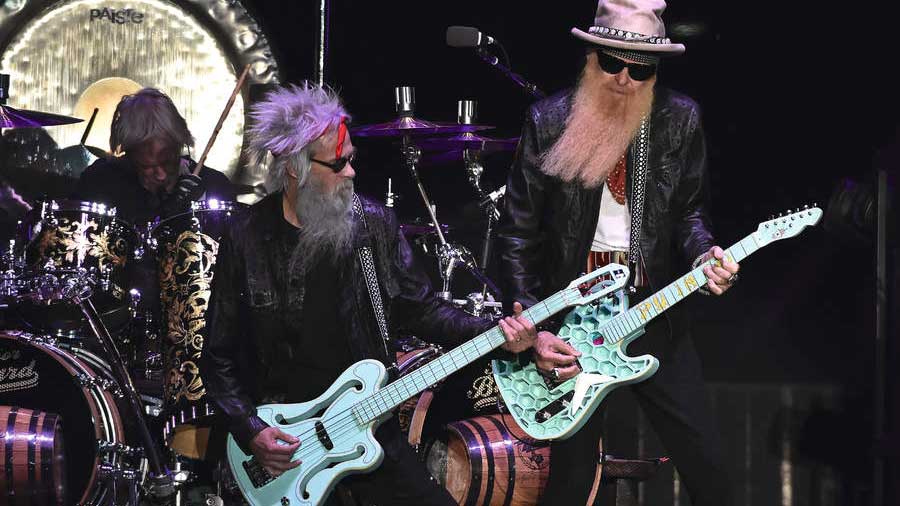
The revival – and indeed the very survival – of ZZ Top in 2022 is something of a miracle. The longest-lasting trio in the history of rock were still touring America to celebrate (belatedly) their 50th anniversary when bass player and singer Dusty Hill died in his sleep at the age of 72 last August. He was replaced apparently seamlessly by Billy Gibbons’s guitar tech, Elwood Francis, and the show just kept on rolling.
Less than a year later, the band have recently wrapped up a tour of Canada and are currently on their Raw Whisky Tour of the USA, a full-throttle, 50-plus-dates excursion in support of their latest album Raw. Reports of the early shows suggest a band that are not just fully functioning, but also actively re-energised. Can this be true?
“Yes indeed,” Gibbons says, on a day off from a full-on schedule. “It’s quite a trip having Elwood step in to help keep the ball rolling. He’s adding a great bit of enthusiasm. When I see [drummer] Frank Beard smiling for the first time in thirty years, I know something good’s happening.”
Francis, from Lexington, Kentucky, age (said to be) 60, has worked with Gibbons and ZZ Top since the early 1990s. As well as maintaining the group’s magnificent arsenal of vintage, specialist and sometimes bizarre novelty guitars in peak performance mode, he has played harmonica in Gibbons’s solo touring band and is guitarist in his own punk band the Mighty Skullhead.
Intriguingly, it was Hill’s idea to bring him in as a substitute bass player.
“Dusty knew that he might be out for a bit,” Gibbons recalls. “He was somewhat out of sorts, and he requested permission to pay a visit to the physician. And his remarks were aimed at bringing Elwood into the fold, being that he was a family member for over thirty years who knew all the ropes. And with that in mind, Elwood tipped his hat and agreed to take the reins.”
In what would appear to be a heroic mark of respect for the ZZ Top brand, Francis – who was clean-shaven when I met him in 2018 – has grown a beard to match that of his illustrious predecessor.
Sign up below to get the latest from Classic Rock, plus exclusive special offers, direct to your inbox!
“When Elwood jumped aboard initially, he was a skateboarder eating an avocado sandwich,” Gibbons says. “No one even knew that he had whiskers until he showed up to a rehearsal, and I said: ‘Who’s the new guy?’ And the chief technician said: ‘That’s your guitar technician, Elwood.’ I said: ‘No, the guy with the big beard.’ And he said: ‘Yeah, that’s Elwood.’”
Despite being at the heart of one of the most rigorous rock’n’roll operations on the planet, Gibbons likes to keep things spontaneous, and regards the arrival of the new beard as divine serendipity.
“That’s the real miracle,” he says. “The irony was that it was not so different to what brought ZZ Top into this whiskered imagery in the first place. It started because Dusty and I simply got lazy. And when I quizzed Elwood he said: ‘Yeah, I wasn’t doing much. Just hanging around the house. And I just got out of the habit. Next thing I knew I had a doormat hanging from my chin.’”
It seems quite astonishing that the band would have acquired a fully bearded understudy ready to take over from Hill without being aware beforehand that something was seriously amiss. Were there any warning signs, or was his death a complete shock?
“It was very unexpected,” Gibbons says. “Although Dusty had his bouts with this and that, he seemed to bounce back each time. And in fact when we were preparing for the tour we had a seven-days planned rehearsal and everything was straight ahead. Dusty wasn’t really out of sorts until we showed up for the first performance. We got through the evening but I could tell he wasn’t a hundred per cent.
"And finally he said: ‘I’d like to take a moment and go see the physician and see if we can iron out what’s got me on the ropes.’ He returned to Texas and made an appointment to see the doc. And it was that night he went to sleep and it was… lights out. It was just… it was totally unexpected.”
What did Gibbons feel when he got the news of Dusty’s passing? “It took a moment for the reality to sink in. But, you know, he’s no different from the rest of us; unfortunately we’re all going to go some time. We prefer to put it off, if you know what I mean.
"The day after Dusty passed, I spoke with a good friend, another guitar player, Steve Cropper. And years before, when Duck Dunn [bass player with Cropper in Booker T. & the M.G.’s] passed away, I took note of Cropper’s remarks. He said: ‘I feel like I’ve lost a great friend. And that went well beyond another musician. He was well beyond that.’ And we felt that way about Dusty. We lost a great friend.”
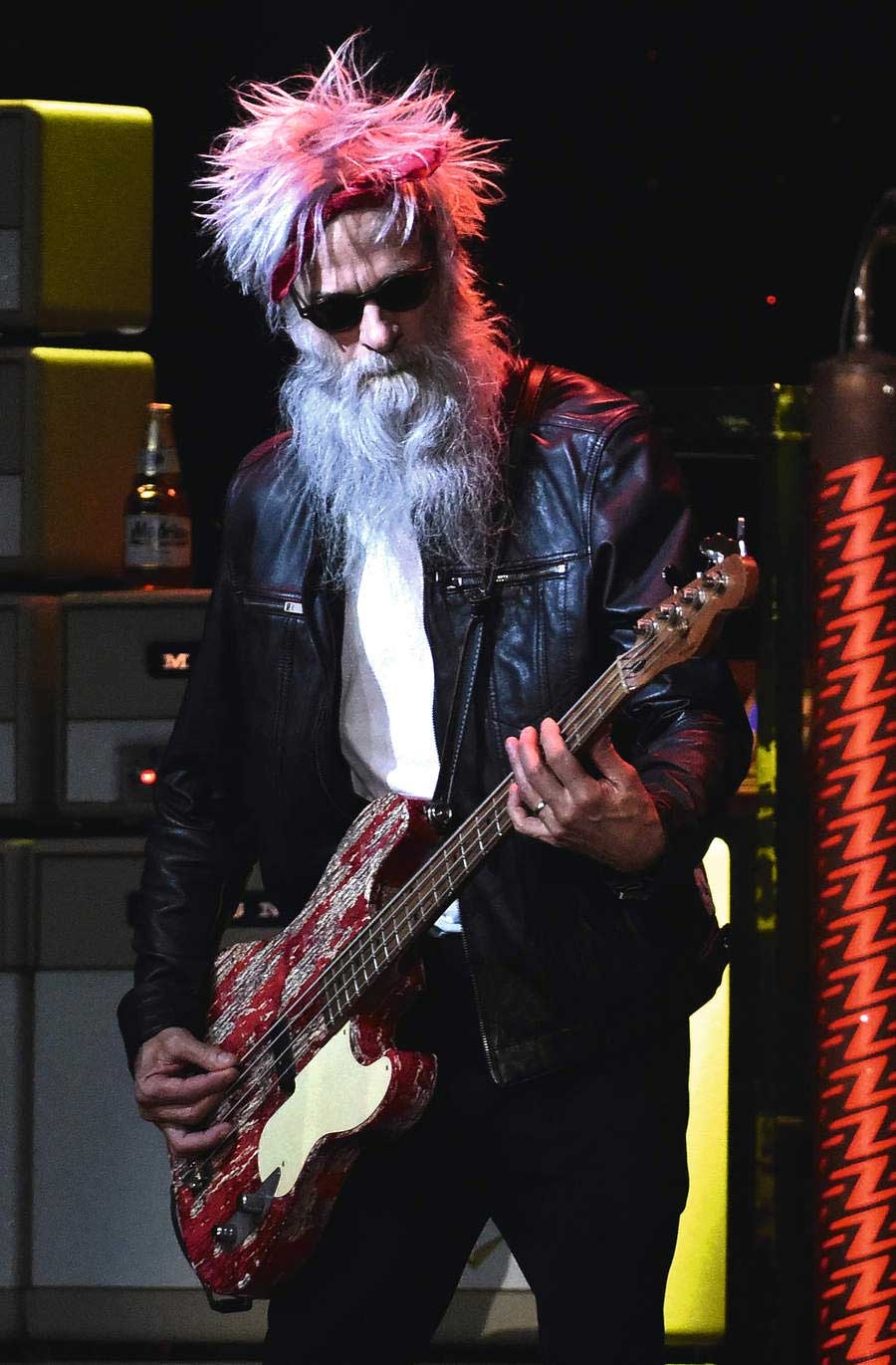
The sudden passing of Dusty Hill lends a poignancy to ZZ Top’s latest album, Raw. As Gibbons and Beard write in the album’s sleeve-notes: “These stripped down and very raw tracks of abstract blues were the last recordings with Dusty.”
‘Stripped down’ is accurate enough, but doesn’t do justice to the brilliance of Raw, which finds ZZ revisiting a bunch of lifetime favourites from their back catalogue in a supremely relaxed and empathetic manner. It was recorded during the filming of the ZZ Top TV documentary That Little Ol’ Band From Texas, itself a work of detailed and affectionate storytelling, which gets as close to the heart of ZZ Top as any outside agency could reasonably hope to do.
During the making of the film, the band got to set up for an afternoon in Gruene Hall, New Braunfels, a honky-tonk that lays claim to be the oldest dance hall in Texas. Away from the crowds, and relieved of the pressure to perform for anyone other than themselves, they casually – but brilliantly – ran through a bunch of songs with an off-the-cuff warmth and spontaneity that sets a new benchmark for ‘live in the studio’ recordings.
“It was in a very real way a return to our roots,” Gibbons and Beard write in their sleeve-notes. “It was as bare-bones as when we first started touring in a behemoth Chrysler station wagon, driving vast stretches between those early far-flung shows under blackened Texas skies and first hearing one of our records on the radio. We were bonded as brothers.”
Beginning with the comparatively obscure Brown Sugar from ZZ Top’s First Album (released three months before the Rolling Stones song of the same name in 1971), and then working through a bunch of gems including Blue Jean Blues, Just Got Paid and I’m Bad, I’m Nationwide, and carrying on to the monster hits Legs and Gimme All Your Lovin’ from Eliminator, the trio embraced their musical legacy in one final, joyful and entirely spontaneous performance, which according to Gibbons they weren’t even aware was being recorded at the time.
“The director said ‘Give us a few minutes, we’re still getting our end of things sorted out.’ So we just began playing,” Gibbons recalls. “Little did we know that the technicians had set up the recording gear and were actually capturing all this.”
Did the band do any overdubs afterwards? Or did Gibbons re-do any of his vocal parts?
“No. As a matter of fact, it was some time after we’d finished the movie that the technician rang up and said: ‘By the way, what should I do with the recordings from Gruene Hall?’ And we were kind of mystified. I said: ‘What recordings are you referring to? We don’t know of anything.’ And he said: ‘Oh yeah. We captured the whole afternoon.’ And when I listened to it I said: “Gee whizz, maybe we’re okay as a band after all! We don’t really need to do much to this.’ We were pleasantly shocked. It’s about as honest a delivery as we can ask for.”
Aside from the recording session that led to the Raw album, Gibbons says his favourite part of That Little Ol’ Band From Texas was revisiting the story of the band’s trip to Hawaii, where they supported the Rolling Stones for three shows in 1972. Their manager at the time, Bill Ham, had imposed a two-drink limit on the band members for each night of their stay. But the boys found a bar that served a specialty drink called Chimp In Orbit that was so massive it was served in a three-foot-tall container that sat on the floor and could only be drunk through a long straw.
“So our maximum of two drinks was well worth the investigation!” Gibbons says with a laugh.
Since 2006, ZZ Top have been managed by Carl Stubner. But it was Ham who managed the trio from the outset, and who took them from unknown hopefuls to international stardom. Ham died in 2016, and is fondly remembered in the movie, especially by Hill.
“Going back to the beginning,” Gibbons says, “you got to realise that Bill Ham was a guy willing to take on three unruly, rag-tag musicians. And for him to have the vision and foresight to keep us together and rolling along was no small feat. I suppose it’s somewhat less challenging today. I would hope that we’re qualified to be a bit more mature. But still I think the role of management, it’s a precarious position to attempt to assume on any level. But it’s part of the machine that keeps us rolling.”
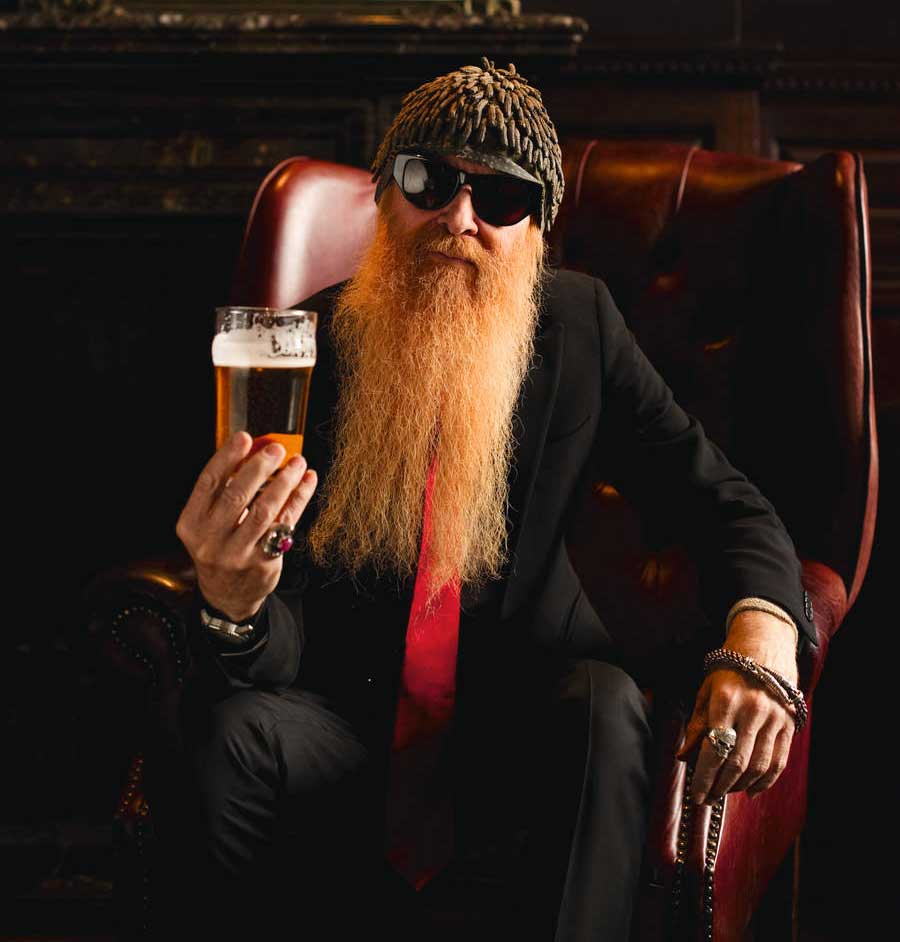
Like the Raw album, That Little Ol’ Band From Texas has also become Hill’s swansong and, as things have turned out, it draws a fitting line under the story of ZZ Top Mk.1. Watching Gibbons, Hill and Beard sitting around a table reflecting on their adventures and then driving off into the sunset together in one of Gibbons’s vintage hot rods has a valedictory feel, to put it mildly. However, Gibbons stands firm in stating that this was not their original intention.
“I enjoyed making the movie,” he allows. “Once I’d got past the initial exchange with the director [Sam Dunn]. I said to him: ‘This sounds like a capital idea.’ However, every story requires an ending. And I said: ‘I hope you’re not trying to bring ZZ Top to a close. Because we’re still going strong.’ He said: ‘Oh no. My aim is to bring the tale forward to the present and let you guys continue moving forward.’ I said: ‘Okay. If that’s the case, we’ll get down to business.’ That’s all very well. But as Paul Stanley and Gene Simmons have recently been at pains to point out in relation to Kiss: “You have to know when to quit.”
When Hill died, did Gibbons consider, even for a moment, whether it was time to bring ZZ Top to a close? “Well it was an unexpected reality that landed not only in my lap, but allowed me to hunker down and get serious with Mister Beard. And the two of us both agreed that as an honour to the legacy of the band, we felt it would be more suitable to try to pick up sticks and carry on, rather than just throw in the towel. And fortunately, with the arrival of Elwood Francis that possibility became a reality. And here we are today having as much fun up there on stage as we ever have.
“It’s interesting. Elwood’s background is steeped in the punk-rock world. We were curious if such a background was going to enter the ZZ Top world. But I must say that Elwood’s presence brings a robust energy that is actually a boost to ZZ Top. You might even consider us being somewhat new as a band. Which we are! It’s really entertaining, I’ll say that.”
As well as playing bass does Francis cover for Hill in the vocal department?
“He has been able to step up and add his interesting colour to the singing,” Gibbons says. “He’s quite good at harmonising, but he’s still a bit shy about taking a lead vocal at this stage of the game. But who knows? I can cut him loose and let him do his thing.”
Having undergone the dramatic change of circumstances, ZZ Top have embarked on an unlikely second act. Like the Rolling Stones and AC/DC, they have brushed off a blow that would have stopped other bands in their tracks.
At the end of last year they sold off their publishing catalogue, together with their income from recorded royalties and performance royalties, to BMG. It’s a move that has not only secured their individual positions financially, but also “ensures the band’s recorded legacy will endure for generations to come”, according to their manager Stubner.
Gibbons also has plans to move forward with his solo career (now three albums in) and has recording dates “in the book, coming up in the next six weeks” with drummer Matt Sorum and guitarist Austin Hanks. “We’ve got a string of songs that were started during the last go-round. So we’ll pick up where we left off and give it a go. I’ll be getting the solo show back together, and there’s talk of some dates in South America.”
Meanwhile, ZZ Top are booked solid in venues covering every corner of the USA, with three outdoor shows scheduled for New Zealand in early 2023. Gibbons would also love to bring the band back to Europe and the UK.
“I believe it’s an issue of playing catch-up,” he says. “The promoters are having to deal with having had so many postponed shows over the last couple of years. As soon as we get the green light, we’d love to come and see you, brother.”
In looking to the future, the 72-year-old Gibbons cites the words of blues legend the late Muddy Waters: “‘As long as I’m able to get up and have a good time, we’ll keep it going.’ Those are the words that resonated with Keith Richards, and we can buy into that as well.”
ZZ Top's Raw Whisky tour continues. For full dates, visit ZZ Top's website.
Musician since the 1970s and music writer since the 1980s. Pop and rock correspondent of The Times of London (1985-2015) and columnist in Rolling Stone and Billboard magazines. Contributor to Q magazine, Kerrang!, Mojo, The Guardian, The Independent, The Telegraph, et al. Formerly drummer in TV Smith’s Explorers, London Zoo, Laughing Sam’s Dice and others. Currently singer, songwriter and guitarist with the David Sinclair Four (DS4). His sixth album as bandleader, Apropos Blues, is released 2 September 2022 on Critical Discs/Proper.
